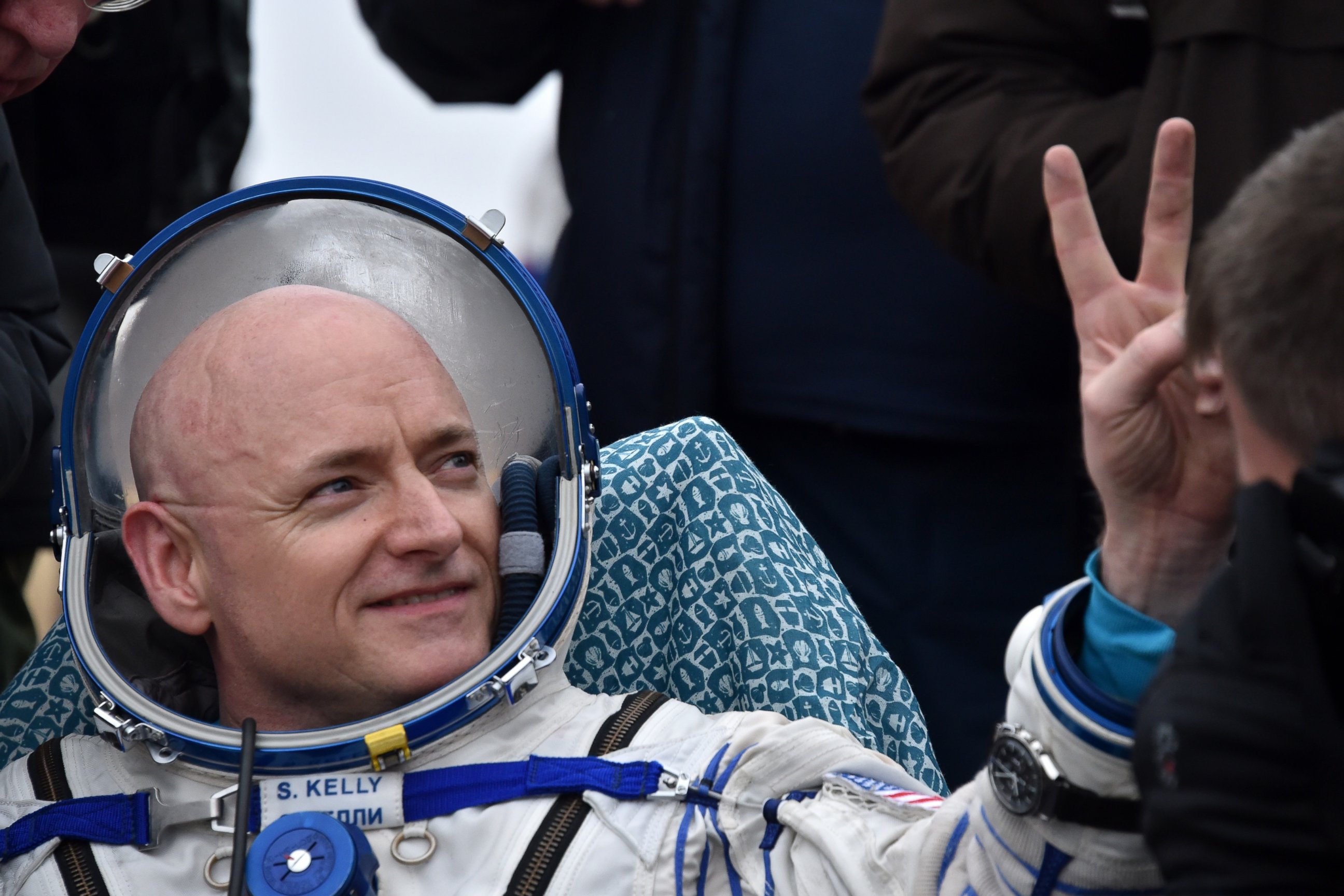Astronaut Scott Kelly to Retire From NASA in April
Scott Kelly is retiring after his year-long mission in space.
— -- After spending a year in space, astronaut Scott Kelly plans to retire next month, NASA announced in a press release today.
Kelly, 52, joined the Astronaut Corps in 1996 and currently holds the record for the most time spent in space, NASA said. His retirement will take place April 1.
Following his retirement, Kelly will continue to participate in ongoing research related to his one-year mission. His brother, retired astronaut Mark Kelly, also made himself available for NASA's twin study during Kelly's time in space.
Kelly called his mission in space a "profound challenge" that gave him a "unique perspective" and time to reflect on his next step to further capabilities in space and on Earth.
"My career with the Navy and NASA gave me an incredible chance to showcase public service to which I am dedicated, and what we can accomplish on the big challenges of our day," Kelly said. "I am humbled and excited by new opportunities for me to support and share the amazing work NASA is doing to help us travel farther into the solar system and work with the next generation of science and technology leaders."

Kelly has flown to space a total of four times. On his first trip in 1999, he went to NASA’s Hubble Space Telescope on the space shuttle Discovery for a servicing mission. For his second trip, he served as commander of the space shuttle Endeavour on a trip to the International Space Station. Kelly then spent six months at the International Space Station in 2010, commanding Expedition 26.
Kelly broke the American record for most cumulative days in space, accruing a total of 520 days at the end of his year-long mission. He returned to earth aboard Russia's Soyuz on March 2.
“Records are meant to be broken,” Kelly said. “I am looking forward to when these records in space are surpassed.”
NASA's twin study is critical to understanding how the human body responds to extended space missions as part of an effort to expand the boundaries of space exploration beyond low-Earth orbit, according to NASA.
Brian Kelly, Director of Flight Operations at NASA’s Johnson Space Center in Houston, said the experiments Kelly took part in aboard the space station will have "far-reaching effects" and will help pave the way to putting humans on mars and improving life on Earth.
"His passion for this work has helped give hundreds of thousands of people a better understanding of what NASA does..." he said. "We appreciate his years of service and anticipate many benefits to come from them, thanks to the research he’s supporting.”



